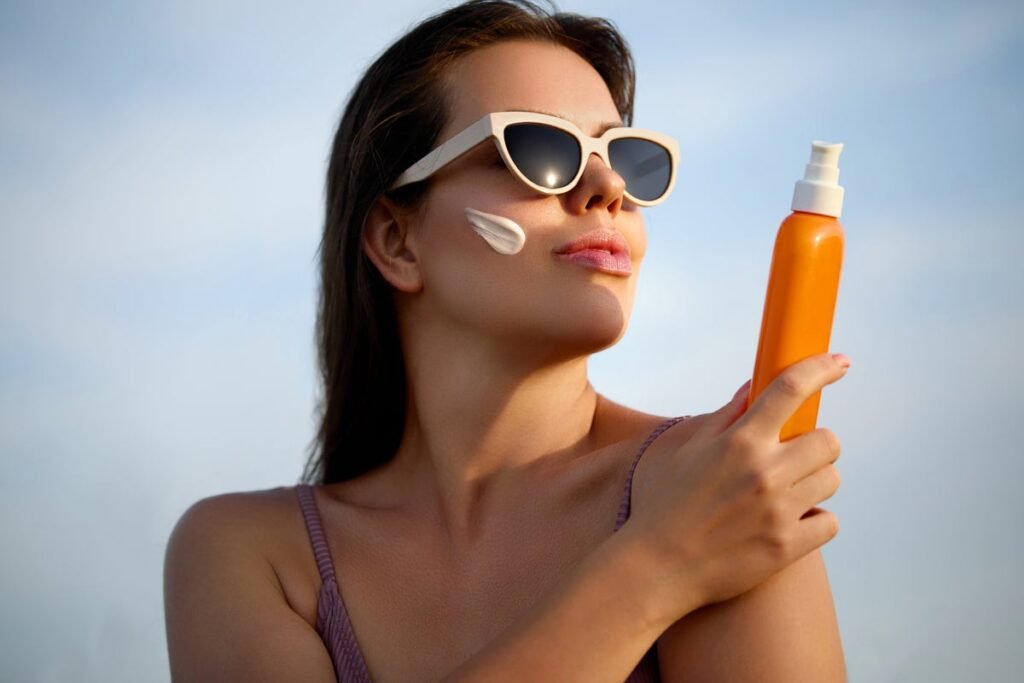The Rise of the Anti-Sunscreen Movement: Why It’s Time to Reconsider Your SPF
As summer approaches, the importance of sun protection becomes paramount. Yet, an alarming trend is emerging on social media: the anti-sunscreen movement. This phenomenon, fueled by misinformation and sensational claims, has gained traction, particularly among younger generations.
Understanding the Sunscreen Debate
The anti-sunscreen rhetoric often features individuals promoting "natural" alternatives, leading to misconceptions about the effectiveness and safety of traditional sunscreens. For example, some social media influencers have claimed that many sunscreens contain “toxic chemicals” that do more harm than good. According to them, these chemicals can even increase the risk of skin cancer rather than protect against it.
The Surge in Misinformation
- TikTok Trends: The movement has particularly flourished on platforms like TikTok, where videos touting homemade sun care alternatives have garnered millions of views.
- Influencer Opinions: Celebrities and influencers are sharing anecdotes that discourage sunscreen use, often citing personal beliefs about "natural" products.
- Gen-Z Beliefs: Studies, like one from the American Academy of Dermatology, indicate that 28% of young adults believe getting a tan is preferable to the risk of skin cancer.
The Science Behind Sunscreen
Understanding how sunscreen functions is crucial. The sun emits UVA and UVB rays, both of which can severely damage skin.
- UVA Rays: Cause deeper skin damage, leading to aging and pigmentation issues.
- UVB Rays: Responsible for sunburn and DNA damage, directly linked to skin cancer.
The Importance of Broad Spectrum Protection
A broad-spectrum sunscreen is essential for protection against both types of rays. There are two main types:
- Chemical Sunscreens: Absorb UV radiation and convert it to heat.
- Mineral Sunscreens: Contain ingredients like zinc oxide and titanium dioxide, physically blocking the rays.
Debunking Myths about Chemical Ingredients
Influencers often cite studies showing that certain ingredients like oxybenzone can be detected in the bloodstream. It’s essential to clarify:
- The amounts found are minimal and lack evidence of harm in real-world use.
- Regulatory bodies like the FDA have approved sunscreens after rigorous testing.
Risks Associated with Avoiding Sunscreen
Consequences of Misinformation
- Skin Damage: Tanning is a sign of DNA damage; thus, claims about "building tolerance" are misguided.
- Higher Skin Cancer Risk: Not using sunscreen can lead to significant long-term consequences, including skin cancer.
Misleading Homemade Alternatives
Many influencers promote DIY sunscreen mixtures that lack proper UV protection. Ingredients like coconut oil and beeswax provide no reliable SPF, which could lead to serious skin damage.
The Broader Implications
The rise of anti-sunscreen sentiment reflects a larger trend of skepticism towards traditional medicine. The COVID-19 pandemic has notably accelerated these narratives, where resisting medical authority is seen as empowering.
Why This Matters
- Empowerment vs. Misinformation: Opting for DIY solutions over scientifically proven products can lead to harmful consequences.
- Influence of Social Media: Platforms reward catchy, often misleading narratives, making it difficult for factual medical advice to get the attention it deserves.
Conclusion: Choose Wisely for Your Skin
Decades of research underscore that sunscreen is one of the most effective tools for reducing the risk of skin cancer and premature aging. As tempting as alluring social media claims may seem, the best approach remains backed by scientific evidence:
- Always Use Broad-Spectrum SPF 30 or Higher: The NHS recommends using broad-spectrum sunscreen with a minimum SPF of 30.
- Regular Applications: Every two hours or immediately after swimming or excessive sweating.
- Stay Informed: Always seek out credible medical advice rather than social media narratives.
When protecting your skin, a little education can go a long way.
For more detailed information on the significance of sunscreen, consider visiting reputable sources like American Academy of Dermatology or Cancer Research UK.


